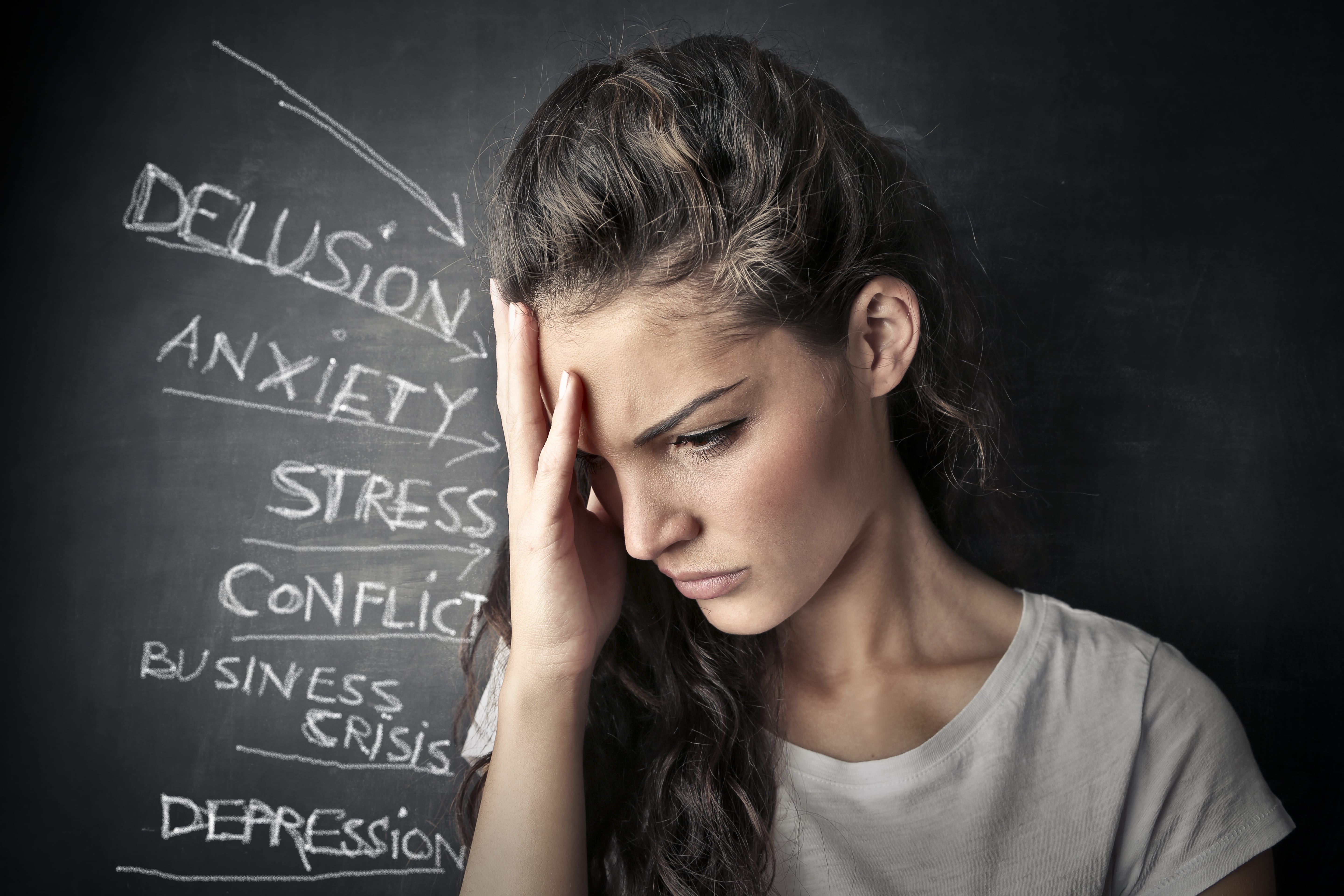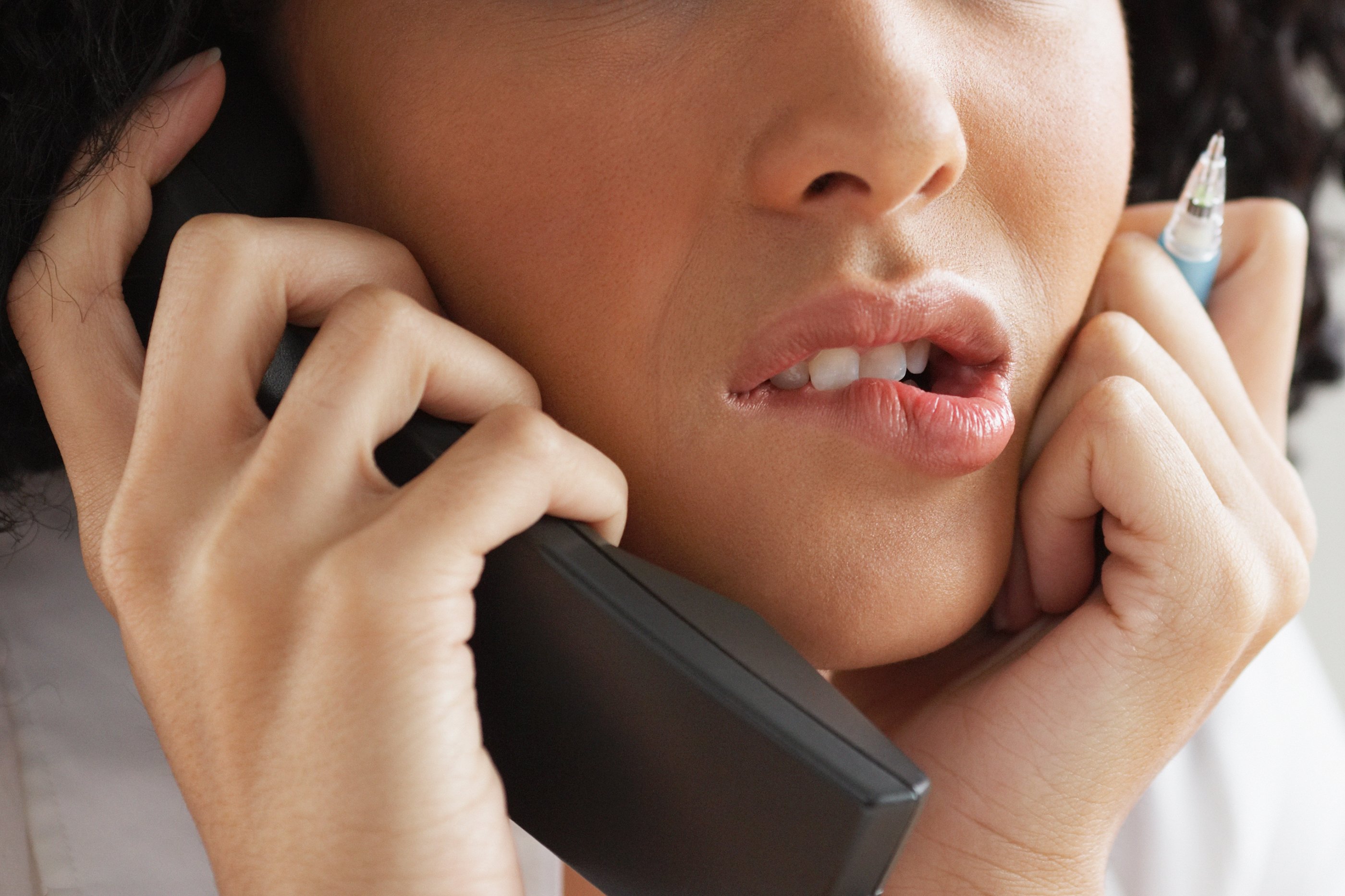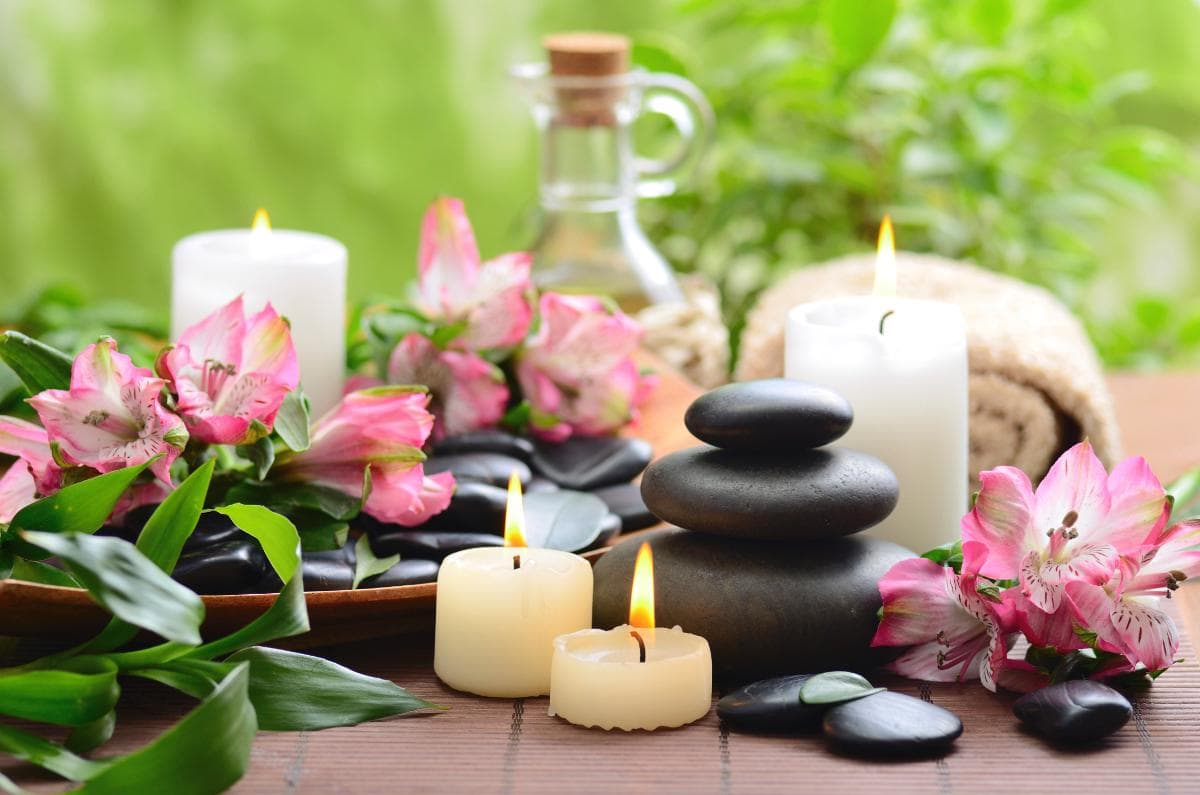Best Natural Remedies for Anxiety from Canadian Health&Care Mall
CONTENT
- Anxiety and how it may affect a person’s life
- Natural herbs and supplements to help balance the nervous system
- Lifestyle changes to manage anxiety
Anxiety and how it may affect a person’s life
Anxiety, or intense worry and apprehension, is a natural response to stressful events. But in certain cases, it becomes disproportionate and can cause its sufferers to fear everyday situations. This kind of persistent, hyperbolic concerns and anticipations of negative consequences in unknown situations is called Anxiety Disorder.
Anxiety can fill you with incomprehensible dread of ordinary activities or obsessive thoughts or that you cannot work. Anxiety can also make you feel so uncomfortable about social interaction that may choose to isolate yourself, avoiding social gatherings and missing potential acquaintances altogether. And the enduring stigma surrounding anxiety can make you feel embarrassed to admit to having persistent worries or phobias, which look like symbols of weakness.

But anxiety may also change the way you act daily, both when you feel anxious and when you do not. In the paragraphs below, the experts of Canadian Health&Care Mall explore some of the common and less common deviations that occur because of anxiety.
Nervous Tics
Anxiety is sometimes accompanied by nervous tics. Some examples of nervous tics include shaking your leg up and down, winking or blinking, touching your face, and more. Some nervous tics may also be represented by habits, like clearing your throat or picking your nails – but habits differ from tics since they are more under your control. Nervous tics represent a medical paradox. No one is sure what exactly causes them and why they hit some people but not others, but nervous tics are very common in anxiety disorder patients.
Self-imposed Isolation
Self-imposed isolation is perhaps the most common behavior in anxiety disorder patients. It is the need to be alone with your thoughts and try to “manage your anxiety” without others` help. But isolating yourself from the world is the last thing you need. Time spent in your thoughts is time spent tumbling down the vicious spiral since your thoughts are your enemy.
Compulsions
Compulsions are likely the strangest behaviors triggered by anxiety disorder. Compulsions represent behaviors that a person engages in compulsively to get rid of anxiety producing negative thoughts. Compulsions can refer to fear or obsession or a need for order.
Some examples of compulsive behavior include:
- Avoiding cracks in the ground because you are terrified that your sister may hurt herself
- Checking whether you closed a door five times before leaving
- Having arbitrary items like canned food all facing the same way
Such anxiety behaviors are created because they offer some form of relief for a person with the anxiety producing negative thought.
Changes in Skin Color
Hormones released due to anxiety affect the entire body.
Not surprisingly, your skin may be easily affected by anxiety as well, in some cases triggering changes in skin color, such as:
- Redder Skin. Anxiety can cause skin to be become redder – particularly around the face area. This is instigated by capillaries in the face area dilating, and thus allowing in more blood flow and making the skin noticeably red.
- Lighter Skin. On the opposite end, anxiety can also make your skin much lighter. This happens because blood may rush towards the heart away from the skin, causing the skin to lose its natural pigmentation.
- Skin Disorders. Some skin disorders can worsen during anxiety. For instance, if you have rosacea, you are likely to experience an outbreak when you feel anxious, which leads to skin discolorations. Almost all known disorders that instigate skin discolorations appear to be either worsened by anxiety or triggered by anxiety.
Although you are not going to turn green or purple, some degree of skin color change may happen with anxiety, especially under extreme forms of anxiety like a panic attack.
Agoraphobia
Some anxiety disorders may cause a person to develop agoraphobia, which represents the fear of open or public spaces or the fear of being incapable of escaping, but frequently refers to a person`s refusal to leave a few select environments. Caused primarily by panic disorder, agoraphobia and anxiety arise because the affected person starts to associate different spaces with panic attacks, until ultimately so many spaces are associated with panic attacks that they just refuse to go out altogether.
False Coping Tools
People affected by anxiety may develop false coping tools, for example drug or alcohol abuse. Those forms of behaviors are intended to suppress the anxiety so that it is incapable of bothering you as much. It is difficult to experience anxiety when you are under strong influence of drugs or alcohol.
But they are false coping tools as they can make anxiety worse, and often instigate anxiety themselves. For instance, alcohol can cause anxiety the next day because of dehydration and stress. False coping strategies are common, and not limited to alcohol or drugs. Any approach that is unhealthy physically or psychologically used to suppress anxiety is a tactic that will inevitably lead to negative issues in the future.
Thought Behaviors of Anxiety
Negative thought behaviors are particularly common with anxiety, including manifestations like:
- Feeling as though you are becoming insane.
- Destructive self-talk (i.e. “I am nuts” or “I am going to humiliate myself”)
- Convincing yourself something is not right with you

Natural herbs and supplements to help balance the nervous system
Herbal solutions like kava, valerian root, as well as mineral supplements like magnesium may also be beneficial in anxiety treatment. Natural remedies demonstrated success in reducing anxiety, especially in intermediate severity cases. They are less helpful in severe cases, but may still be used as a supplementary treatment. Keep in mind, 100% natural doesn’t mean 100% safe. Natural remedies for anxiety may also interact with other medicines.
Kava
Kava is the #1 natural anxiety remedy, and the only plant-based supplement favorably compared to well-known prescription anxiety drugs. Kava`s active component, kavalactones, is thought to improve GABA (gamma-aminobutyric acid), an inhibitory neurotransmitter frequently referred to as “nature’s valium”. GABA is an important mood modulator regulating epinephrine, norepinephrine, serotonin and dopamine.
The experts of Canada Healthcare Mall do not recommend mixing kava with other types of herbal supplement or drugs for anxiety because kava is very powerful by itself. Keep in mind that kava also interacts strongly with alcohol and can damage the liver, so concurrent consumption of kava and alcohol is strictly prohibited.
Valerian Root
Unlike kava, valerian root does not necessarily have anxiolytic effects, but it provides relief from the symptoms of anxiety, such as sense of agitation, muscle tension, and active thoughts, and has fewer interactions compared to kava. Valerian root also provides a degree of relaxation that enables anxiety patients to sleep more restfully.
Passion flower
Passionflower is a light version of kava, and is recommended for those patients who do not experience that much of anxiety and would prefer a less strong supplement. The components in passionflower have a very slight sedative effect and anxiolytic effect, which is assumed to originate from its role in GABA production.
Magnesium
Magnesium is a mineral that is present in various foods. Unfortunately, many people have an insufficient level of magnesium consumption, because it has been largely stripped from modern diets – especially in the West, where farming and food processing practices eliminate this essential mineral from most foods.
Low levels of magnesium are not responsible for anxiety, but may be responsible for some of the anxiety symptoms such as unusual feelings throughout the body. Anxiety itself can decrease your magnesium levels which means that magnesium is burned up during stressful periods. Supplementing your diet with magnesium might be a smart idea to mitigate your most distressing physical symptoms of anxiety.
Other Options of Natural Treatment for Anxiety
The above-mentioned herbal and mineral enhancements are not the only natural options obtainable. There are alternative options as well.
The experts at Canadian Healthcare Mall emphasize the following:
- Reflexology. There is belief that applying pressure to certain points on the hand can ease stress throughout the body. Reflexologists utilize such specific pressure points in a manner that many adopters believe has a calming effect for most types of stress.
- Magnet Therapy. Another noteworthy form of stress therapy is magnet therapy, also called magnetotherapy. Magnet therapy loyalists believe that placing various magnets on your body can move elements around and deliver anti-anxiety effects.
Other natural anti-anxiety treatments include aromatherapy, Reiki, acupressure, and more. Although most of the natural treatments for anxiety have never been clinically verified, many people support the use alternative treatments because of their comforting psychological effects.

Lifestyle changes to manage anxiety
A healthy lifestyle is an essential component of any anxiety-reducing program. Anxiety patients can boost their stress resistance and overall health by eating a diet rich in a variety of fruits, vegetables and whole grains, getting regular exercise, and avoiding excessive caffeine and alcohol consumption.
Exercise
Exercise is an extremely important stress-reduction technique for many reasons, just to name a few:
- Exercise can be a successful distraction from stressful thoughts and events.
- Exercise can directly overturn the harmful effects of anxiety on blood pressure and the cardio-vascular system.
Discuss any exercise program with a medical expert before starting. The key is to choose activities that are exciting, reasonably challenging, and rewarding.
The experts of Canada Healthcare Mall recommend pay attention to the following suggestions:
- Brisk walking (even brief brisk walks can ease stress)
- Swimming (a perfect activity for most stressed people, including asthma patients, pregnant women and people with musculoskeletal problems)
- Aerobics classes
- Yoga or Tai chi (these activities include many of the relaxation benefits of muscle relaxation, breathing and meditation while stretching and toning the muscles)
Just ten minutes of exercise two to three times per week can be a good base for beginners. Steadily increase the length of the sessions up to 30-40 minutes.
Cognitive-behavior Therapy
Cognitive-behavioral therapy (CBT) is one of the most effective stress-reducing strategies, even if the source of stress is a chronic disease or a chronic pain. A typical CBT method includes detecting sources of stress, restructuring one`s priorities, changing one’s reaction to stress, and finding methods for managing stress.
To detect sources of stress, it is advisable to keep a diary to track daily activities and events. The key is to spot activities that put a strain on your energy level, trigger anxiety or anger, or precipitate a negative physical response. After a week or two, try to detect two or three activities or events that have been most upsetting and overwhelming.
The next task is to replace the stress-producing activities with stress-reducing activities. Envision as many relief options as you can.
A short rundown includes:
- If the cause of stress is at your home, schedule times away from home, even if only for a couple of hours per week.
- Take a long weekend or a vacation at work.
- Listen to music. Research indicates that listening to comforting music can decrease and anxiety levels, as well as heart rate and blood pressure in cardio-vascular patients.
- Make time for daily recreation.
- Consider getting a pet. Research indicates that pet owners have a lesser blood pressure upsurge in response to stress than pet-free.
Alternative Techniques
Discuss Feelings. The concept of letting one`s feelings out has been so excessively endorsed and caricatured that it has almost lost its worth as a serious psychological advice. However, feelings of frustration or anger that are not expressed in an adequate way may lead to a sense of helplessness, resentment and depression.
Expressing feelings is not equivalent of venting frustration. Anger might trigger a spike in blood pressure in many people. Most therapists strongly advocate just talking as opposed to venting anger.
Your principal goal is to explain one’s needs to a trusted person in a maximally positive way. The surprising point is that direct communication may not be even necessary. Composing a letter (that is never mailed), writing a poem or writing in a journal may be perfectly sufficient.
Explaining one’s feelings solves only half of the interaction puzzle. Learning to listen and express empathy to others is equally important for keeping the solid relationships needed for reduced stress and emotional fulfillment.
Use Humor. Research shows that humor is an extremely effective tool for coping with severe anxiety. Retaining a sense of humor in difficult situations is a frequent recommendation of anxiety management practitioners. Not only can laughter release the tension of unexpressed feelings and help an individual keep a perspective, it also appears to deliver concrete physical effects that reduce the levels of stress hormone. You may have noticed that it is not uncommon for people to compulsorily laugh during tragic events because such laughter seems to help endure the emotional trauma of the occurrence.
Relaxation Methods. Unfortunately, you cannot eliminate stress and anxiety entirely. That is why everyone should develop their own methods of relaxation and the natural unwinding. Relaxation lowers one`s pulse rate, one`s blood pressure and respiration, as well as releases muscle tension and reduces emotional pressure. The choice of relaxation techniques is highly individualized, but there are some approaches that appear to work for most people.
Hypnosis. Hypnosis can be particularly valuable for some patients with severe anxiety. In one clinical study of patients suffering irritable bowel syndrome, anxiety decline from hypnosis led to solid improvements in both physical and psychological symptoms.
Acupuncture. Some evidence advocates that acupuncture might improve some of the physical aspects linked to both anxiety and health problems. For instance, acupuncture might improve stress-instigated heart muscle activity in patients with heart failure, thus providing a significant health benefit to these patients. Unfortunately, acupuncture has no proven effect on stress-related heart rate or blood pressure.
Combinations of the above-mentioned techniques possibly work best, emphasize the experts of Canada Healthcare Mall. No one in their sound mind can expect these tactics to entirely eliminate their anxiety and stress, but if practiced regularly, these programs can be reasonably effective.
Related post: www.acanadianhealthcaremall.com/anti-anxiety-drugs-for-ed-boost.html






